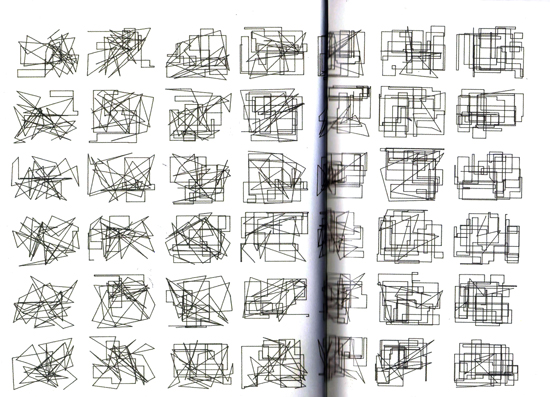Logical Time and the Production of the Intelligible Instructor: Matt HareProgram: Critical Philosophy, History, Design & WorldmakingCredit(s): 2Date: May 17th, 24th, 31st, June 7th, 14th, 21th, 28th, July 5th.Time: 09:00-11:30 ET

DESCRIPTION: In Jean Cavaillès’s On Logic and the Theory of Science (1942–1943; published posthumously in 1947, hereafter LTS), two central theses emerge:
- Science operates outside of time as understood through the lived experience of consciousness (LTS 22).
- Non-simultaneity is not historical but an intrinsic feature of the intelligible (LTS 35–36).
These ideas form the foundation of a theory of “logical time,” where mathematics is characterized by its unique historicity—its relationship between earlier and later theories—termed by Cavaillès, based on Descartes’ treatises, as mathematical concatenation. This Seminar explores how this theory, focusing on mathematical history and its philosophical stakes, illuminates the broader tradition of 20th-century French “mathematical philosophy.” Rarely studied in English, this tradition—represented by figures like Léon Brunschvicg, Albert Lautman, and others—emphasizes the history of mathematical production and its shared conceptual terrain with philosophy. Using LTS as a guide and drawing from other sources, the Seminar will construct this broader intellectual history in two parts.
Part I examines Cavaillès’s place within a tradition grappling with the production of the intelligible, rooted in Brunschvicg, Cartesian rationalism, and the paradox of producing time within time itself. Cavaillès reframes this classical problem by asserting that “the intelligible” is defined by internal non-simultaneity and a rejection of total simultaneity in knowledge. His methodological insight—that self-evidence has been replaced by provability—reinterprets intuition as a product of concatenation, or by what Richard Dedekind called a ‘chain of operations,’ aligning with 19th-century mathematical transformations.
Part II Will Consider how these transformations set the stage for a peculiar research programme in the historiography of mathematics. We will take Cavaillès to have (implicitly) advanced a speculative interpretation in which conjunctural results from the mathematical logic of the 1920s and the 1930s concerning the so-called ‘limitations of formalisms’ (Gödel, Skolem, Church-Turing) were taken to be positive discoveries concerning the nature of the intelligible, i.e. its intrinsic ‘movement’ and resistance in principle to combinatorial enumeration. What is at stake here is nothing less than a metaphysics of mathematical production, derived—it is claimed—from an epistemological research programme for reading the actual history of mathematics. In other words, the core methodological desiderata in this tradition of treating each mathematical work as ‘a regional and specific product’ (Desanti 1983), for all that it is often presented as a strictly methodological or epistemological norm, in fact has roots in an underlying metaphysical distinction between production and what is produced (or, in Cavaillès’s language, between the effectuating and the effectuated). As Cavaillès understood it, this meant that contemporary mathematical logic had shown the ruin of any philosophy of transcendental constitution, and thus of post-Kantian approaches to the philosophy of science, including phenomenology.
Against such philosophies of the transcendental subject, Cavaillès (paradoxically) proposed a theory of the act without a subject. We shall close by considering the origins and future of this doctrine in the philosophy of mathematics, broadly conceived.
SEMINAR OUTLINE
Session 1. Introduction to the ‘Production’ of Mathematical Theories and the Transtheoretical Character of Mathematical Objects, Two Perspectives
Session 2. A ‘Cartesian’ Opposition in the Theory of Proof
Session 3. Logical Time as a Problem in the French Philosophical Field
Session 4. The Necessary Generation of New Concepts, or 19th Century Mathematics Through a Cartesian Lens
Session 5. Rationalist Nominalism as a Research Programme in the Historiography of Mathematics
Session 6. The Method of Recursion and the Horizon of Effective Computability
Session 7. The Act Without a Subject
Session 8. Old and New Problems
IMAGE: George Nees, Untitled, 1965
To see The New Centre Refund Policy CLICK HERE.
To see The New Centre Refund Policy CLICK HERE.